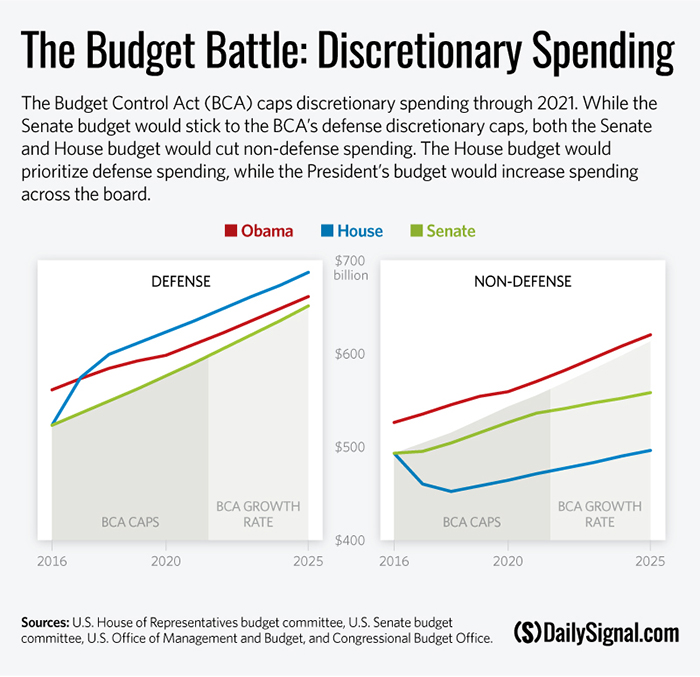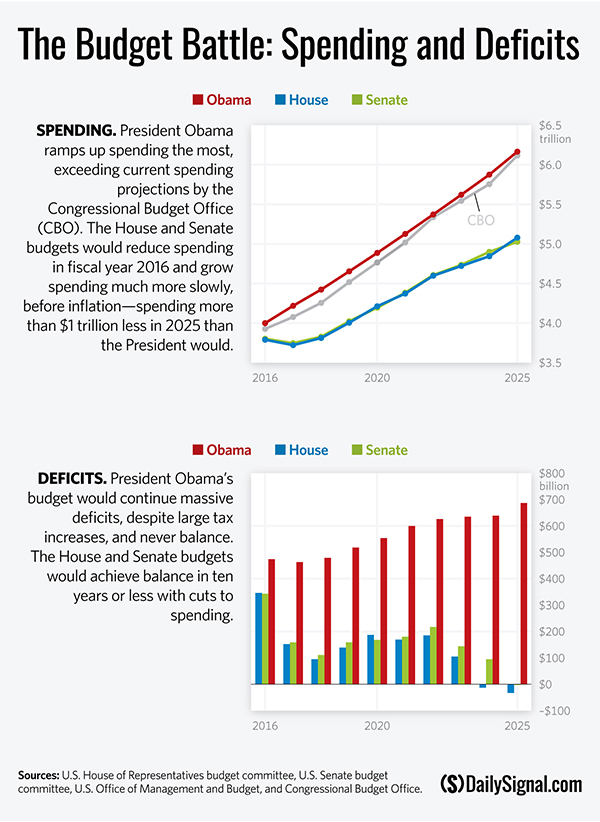As the budget season heats up, congressional Republicans are focused on two key issues: how much defense spending should be and whether to use a budget maneuver to repeal Obamacare.
Defense Disagreement
By far the largest disagreement between the House and Senate regarding the fiscal year 2016 budget is the level and mechanism by which the two budget committees propose to fund defense priorities.
While there is broad agreement that defense levels are too low to sustain military capabilities at appropriate levels, increasing base defense spending above the Budget Control Act’s spending cap of $523 billion in fiscal year 2016 seems politically impossible.
The president insists that any increase in defense spending be accompanied by an increase in the domestic part of the discretionary budget. It is purely a political move that holds the nation’s security hostage to progressive spending priorities.
To fund defense at higher levels without increases to spending across the board, the House and Senate Budget Committees proposed boosting the Overseas Contingency Operations (OCO), or so-called war account, by $96 billion.
At the core of the disagreement is whether such a move is sensible given the political realities that are putting the nation’s defense at an unacceptable risk, or whether lawmakers should prioritize deficit-reduction even if this means underfunding defense even further.
Obamacare Repeal Using Reconciliation
One of the major reasons why the GOP-controlled Congress is intent on passing a concurrent budget resolution (meaning a budget passed by both chambers) in April is that doing so would afford the Congress the opportunity to use a fast-track legislative mechanism—reconciliation—to repeal Obamacare.
Both the House and the Senate’s fiscal year 2016 budget resolutions would repeal all of the more than $2 trillion in new Obamacare spending on the Medicaid expansion and exchange subsidies. In addition, the budget would repeal all of Obamacare’s harmful taxes, insurance regulations and government mandates, alleviating the burden they impose on Americans and businesses.
However, both budgets would assume that the nearly $800 billion in revenues lost through the repeal of these provisions would be made up through tax reform.
Full repeal of Obamacare is an essential first step towards getting the nation’s health care entitlement spending under control. It is also necessary to achieve the goal of market-based and patient-centered health care reform that empowers individuals.
The Senate budget includes open-ended reconciliation instructions to repeal Obamacare and advance these reforms. That’s probably the best, near-term option for achieving that goal. It is unclear whether House leaders would use reconciliation to repeal Obamacare, but it seems likely if Congress agrees on a concurrent budget resolution.
Congress would ultimately only succeed in repealing Obamacare if the president signed the repeal into law.


